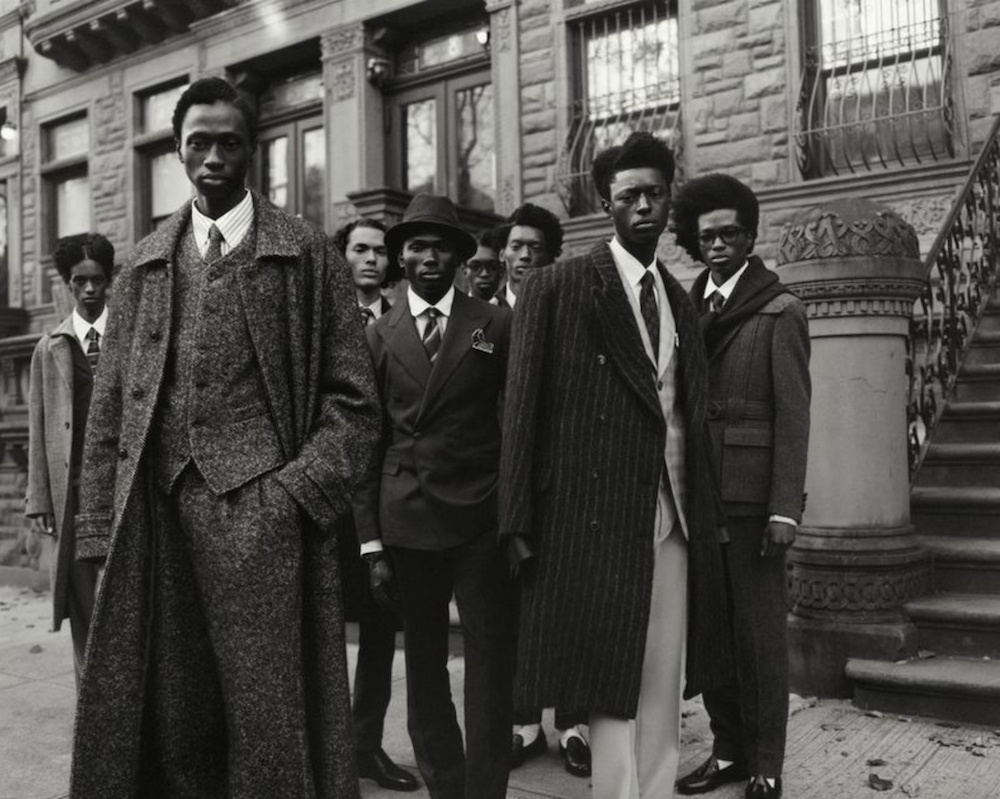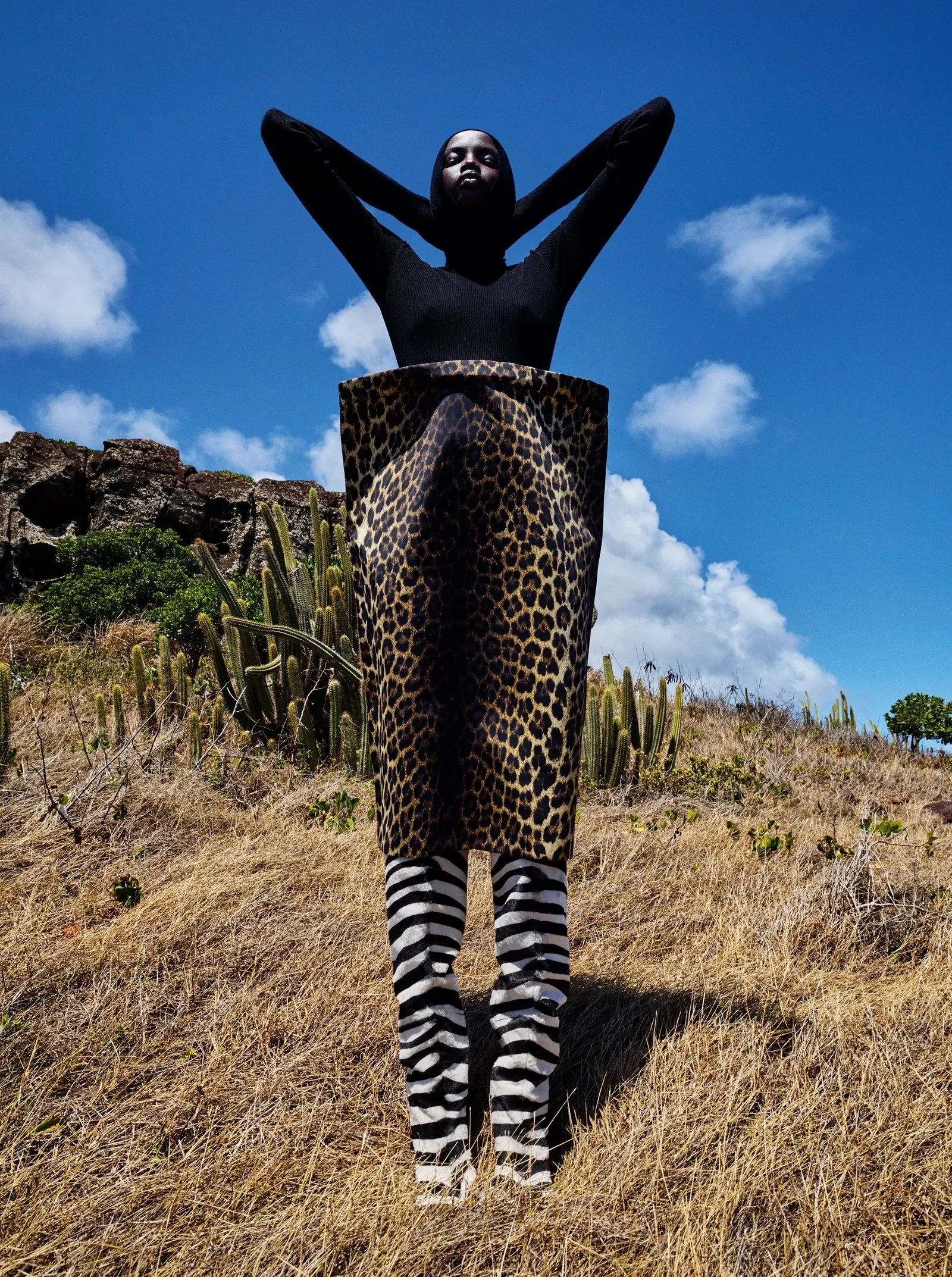Black Enterprise Was a Key Part of New England's Whaling Industry, Including As Ship Owners
/Black Enterprise Was a Key Part of New England's Whaling Industry, Including As Ship Owners
At its peak, in the 1850s, the American whaling industry alone employed 50,000 to 70,000 workers who worked on an estimated 700 to 800 ships.
In the decades before cheap oil helped many industries truly take off, whaling played an important, but often overlooked, role in laying the groundwork for the antislavery movement.
Black sailors made up perhaps 20% to 30% of whaling crews. Of these sailors, some were enslaved and used their hard-won earnings to buy their freedom. Some of these sailors went on to finance abolitionist efforts. Others built houses of worship.
Read MoreGustav Klimt Painting of Prince William Nii Nortey Dowuona Forces Reflection on Human Zoos
/Gustav Klimt Painting of Prince William Nii Nortey Dowuona and ‘Human Zoos’
A potentially lost forever, early artwork by renowned Austrian artist Gustav Klimt, missing since the 1930s, is now being exhibited after its recent recovery. The painting portrays Prince William Nii Nortey Dowuona, a leader of the Ga people from what is now known as Ghana in West Africa. Created in 1897, the portrait shows the prince in profile set against an abstract floral backdrop. Measuring just over 2 feet in height, the compact artwork is being showcased by the Viennese gallery Wienerroither & Kohlbacher (W&K) at the TEFAF Maastricht art fair in the Netherlands, with an asking price of €15 million (approximately $16.3 million).
The Rise of Ethnographic Showcases or ‘Human Zoos’
According to W&K, the painting was created by the artist amid the 1897 Vienna Völkerschau. These Völkerschau exhibitions were ethnographic showcases — also called human zoos — from the colonial era. These widely-attended exhibitions across Europe during the 19th and 20th centuries were often businesses created for financial profit.
Read MoreGigi Hadid Covers Vogue April, Inspiring a Jazz Age Dive into the Harlem Renaissance
/Gigi Hadid Inspires a Jazz Age Dive into the Harlem Renaissance
Supermodel Gigi Hadid graces the cover of American Vogue’s April 2025 issue, styled by Alex Harrington in ‘Jazz Age’ inspired, fashion opulence. Annie Leibovitz [IG] captures the story in the buildup to the 2025 Met Gala’ on Monday, May 5.
A Fusion of Talent, Creativity and Extraordinary Financial Wealth
The Harlem Renaissance was a time of rich cultural exchange and collaboration between African American artists and intellectuals and their white counterparts. While it was fundamentally rooted in the celebration of African American culture, the period was also marked by significant interracial interactions, particularly in the realms of art, literature, and music.
Those white counterparts were other artists themselves. And white patrons also played a crucial role in the movement's development by providing financial support and exposure opportunities for Black artists, in particular.
Read MoreTyler Mitchell's Three Beauties -- Anok, Awar, Mona on Jekyll Island, Ga -- in Vogue Magazine
/Tyler Mitchell's Three Beauties -- Anok, Awar, Mona on Jekyll Island, Ga -- in Vogue Magazine
Top models Anok Yai, Awar Odhiang and Mona Tougaard surely had a deeply emotional experience, working with stylist Camilla Nickerson in this ancient roots fashion story for Vogue, shot by Tyler Mitchell [IG] in Jekyll Island, Georgia.
Key Points About Jekyll Island
1] the human and ecological history of Jekyll Island, which now dates back to 2500 BC and the indigenous Native American tribes, predominantly the Guale people who lived there; 2] the arrival of the Europeans and slavery on the island; 3] the rise on Jekyll Island of an aristocratic cafe society getaway culture in the 1920s that parallels the same rise in Europe
Read More'Amor e Cia' for Vogue Portugal December 2023 Explores Skin Color Beauty
/Photographer Catharina Pavitschitz [IG] adds poetic beauty to the pages of Vogue Portugal’s [IG] December 2023 ‘Love and Hope’ issue with ‘Amor e Cia’ [Love and Company].
Vogue Portugal has an exemplary history in dealing with deeply-challenging issues of skin color, as it impacts racial identity and global culture images.
As European powers began to expand their empires through colonization, the concept of race as a hierarchical system based on physical attributes — particularly skin color — gained traction. This intellectual position was driven by the need to justify the subjugation and exploitation of indigenous populations and the mass enslavement of Africans across the continent.
The Vatican occupies a position of great prominence at the historical heart of the global slave trade, dating back to the 15th century when Pope Nicholas V issued the papal bull Dum Diversas in 1452, granting the Portuguese the right to enslave non-Christian peoples.
Read MoreTyler Mitchell Captures Black Beauty Fall 2023 W Magazine | Aid to Morocco
/Models Ajah Angau Jok, Akon Changkou, Amar Akway, Awar Odhiang, Nyawurh Chuol, and Rejoice Chuol pose in dramatic, shape-shifting, fashion formations created to command attention.
Photographer Tyler Mitchell [IG]gives thanks to EIC Sara Moonves, [IG] and Charles Levai and Kevin Tekinel, creative directors at large for W Magazine and now represented by Art + Commerce. Congrats to Levai and Tekinel on their fast rise./ Hair by Cyndia Harvey; makeup by Lucia Pica; set design by Julia Wagner
Our Deep Sadness for Morocco and Libya
AOC likes the fact that Tyler uses the words “Communion in an everlasting landscape” to describe the W fashion shoot. Except “everlasting” seems like an increasingly fragile word today.
Because Tyler set the mood, let us take a moment to consider the confirmed dead in Libya of 5,000 and heading as high as 10,000 in the devastating surge of floodwaters.
And also the growing death toll in our beloved Marrakech — a magical place that means so much to so many of us creatives. The current death toll is at 3,000 and climbing from the earthquake.
AOC shares Vogue Arabia ‘How to Help Morocco’ links. We are working on Arab-world recommended links for Libya. ~ Anne
Read MoreAmerica 1898: Frazier B. Baker and Baby Julia Fatally Shot for Being a Post Master in Lake City, S.C.
/The 19th century brought enormous change in the postal workforce. In 1802, Congress banned African Americans from carrying U.S. Mail. This ban lasted to the late 1860s, when newly-enfranchised, post Civil War African Americans began receiving appointments as postmasters, clerks, and city letter carriers.
In 1802, Congress banned African Americans from carrying U.S. Mail. This ban lasted to the late 1860s, when newly-enfranchised, post Civil War African Americans began receiving appointments as postmasters, clerks, and city letter carriers.
Read MoreVA Supreme Court Says Dead White Men Do Not Rule: Remove the Damn Statue!
/Republish via AOC at FeedBurner CC 3.0 License Attribution Required: Daily Fashion Design Culture News
The statue of Confederate military leader, anti-United States successionist General Robert E. Lee has loomed six stories tall over Virginia’s state government and its citizens in Richmond since 1890. After a never-ending series of court battles, the VA Supreme Court ruled definitively last Thursday that the state of Virginia may now begin to disassemble the infamous, 12-ton statue.
The court ruled that "restrictive covenants" in the 1887 and 1890 deeds that transferred the statue to the state no longer apply. In June 2021
Virginia Solicitor General Toby Heytens argued before the court for less than a minute last June, regarding one of two cases seeking to block removal of the Lee statue that “no court has ever recognized a personal, inheritable right to dictate the content of poor government speech about a matter of racial equality, and this court should not be the first one ever to do so.”
"Those restrictive covenants are unenforceable as contrary to public policy and for being unreasonable because their effect is to compel government speech, by forcing the Commonwealth to express, in perpetuity, a message with which it now disagrees," the justices wrote.
Gov. Ralph Northam said upon the announcement of the court’s ruling: “Today it is clear—the largest Confederate monument in the South is coming down.”
In its own legal documents before the court, the current state of Virginia wrote:
“Symbols matter, and the Virginia of today can no longer honor a racist system that enslaved millions of people. Installing a grandiose monument to the Lost Cause was wrong in 1890, and demanding that it stay up forever is wrong now.”
Related: Virginia Museum Will Lead Efforts to Reimagine Richmond Avenue Once Lined With Confederate Monuments Smithsonian Magazine
Dead Men's Property Heirs Argue Confederate Statue Rights in New VA Court Move AOC Eye
Naomi Campbell by Ethan James Green Covers Vogue US November 2020
/Naomi Campbell by Ethan James Green Covers Vogue US November 2020
Vogue US honors supermodel Naomi Campbell, now 50 gorgeous years old and her flock of young models Adut Akech, Alton Mason, Anok Yai, Kaia Gerber and Ugbad Abdi in ‘Trailblazer, Mentor, Provocateur: How Naomi Campbell Changed Modeling Forever’.
Photographer Ethan James Green captures the Naomi Campbell cover story with backup from Campbell Addy and Ronan McKenzie. Carlos Nazario styles the shoot in fashion magnificence from Alaïa, Burberry, Christopher John Rogers, Dior Haute Couture, Loewe, Valentino Haute Couture, Versace, Victoria Beckham and more. / Makeup by Pat McGrath; hair by Jawara
See all the fashion credits at Vogue, coupled with Afua Kirsch’s interview, while we catch up with the South London Streatham-raised supermodel, who has just buried her grandmother at age 94. Naomi sits at a table surrounded by her mother Valerie Morris-Campbell, and aunts—Aunt Yvonne, who accompanied the young model on her first trip to Paris at age 16 and Aunt June, who escorted the young ingenue on her first trip to Milan.
There’s a Complex History of Skin Lighteners in Africa and Beyond
/THE WEST AFRICAN NATION OF LIBERIA IS ALLOWING VENDORS TO ERECT HUGE BILLBOARDS ADVERTISING BLEACHING PRODUCTS IN AND AROUND MONROVIA. SIMULTANEOUSLY, RWANDA HAS BANNED SKIN BLEACHING PRODUCTS, WHICH THE GOVERNMENT DESCRIBES AS UNHEALTHY. VIA
There’s a Complex History of Skin Lighteners in Africa and Beyond AOC Body
Somali-American activists recently scored a victory against Amazon and against colourism, which is prejudice based on preference for people with lighter skin tones. Members of the non-profit The Beautywell Project teamed up with the Sierra Club to convince the online retail giant to stop selling skin lightening products that contain mercury.
After more than a year of protests, this coalition of antiracist, health, and environmental activists persuaded Amazon to remove some 15 products containing toxic levels of mercury. This puts a small but noteworthy dent in the global trade in skin lighteners, estimated to reach US$31.2 billion by 2024.
What are the roots of this sizeable trade? And how might its most toxic elements be curtailed?
The online sale of skin lighteners is relatively new, but the in-person traffic is very old. My new book explores this layered history from the vantage point of South Africa.
As in other parts of the world colonised by European powers, the politics of skin colour in South Africa have been importantly shaped by the history of white supremacy and institutions of racial slavery, colonialism, and segregation. My book examines that history.
Yet, racism alone cannot explain skin lightening practices. My book also attends to intersecting dynamics of class and gender, changing beauty ideals and the expansion of consumer capitalism.









































